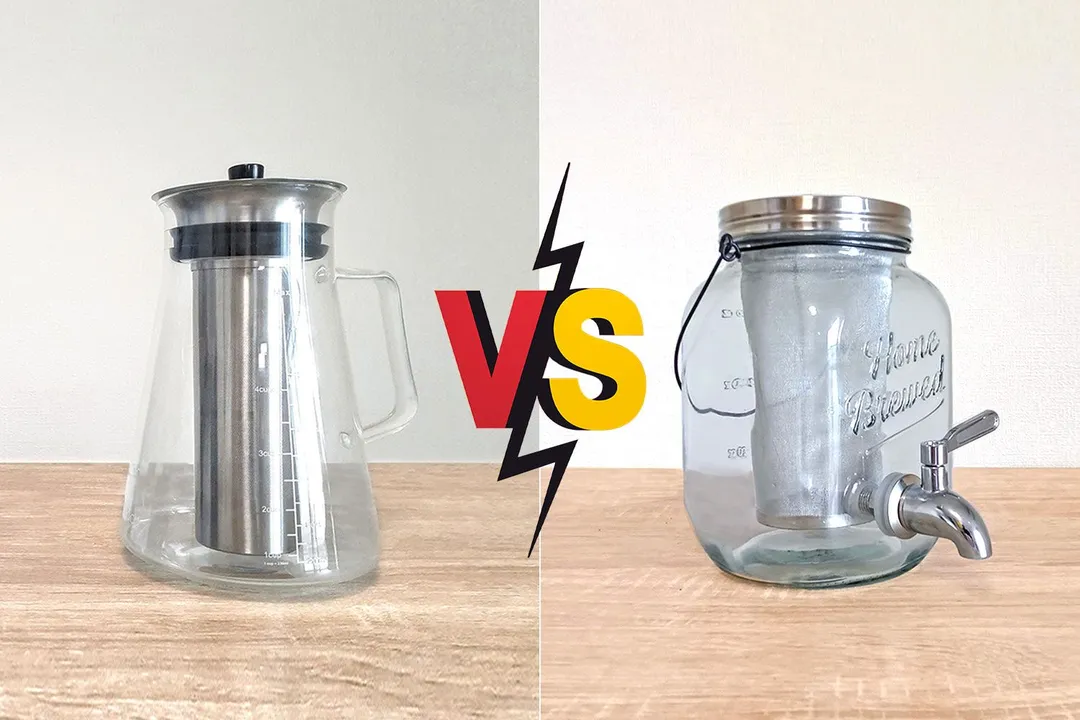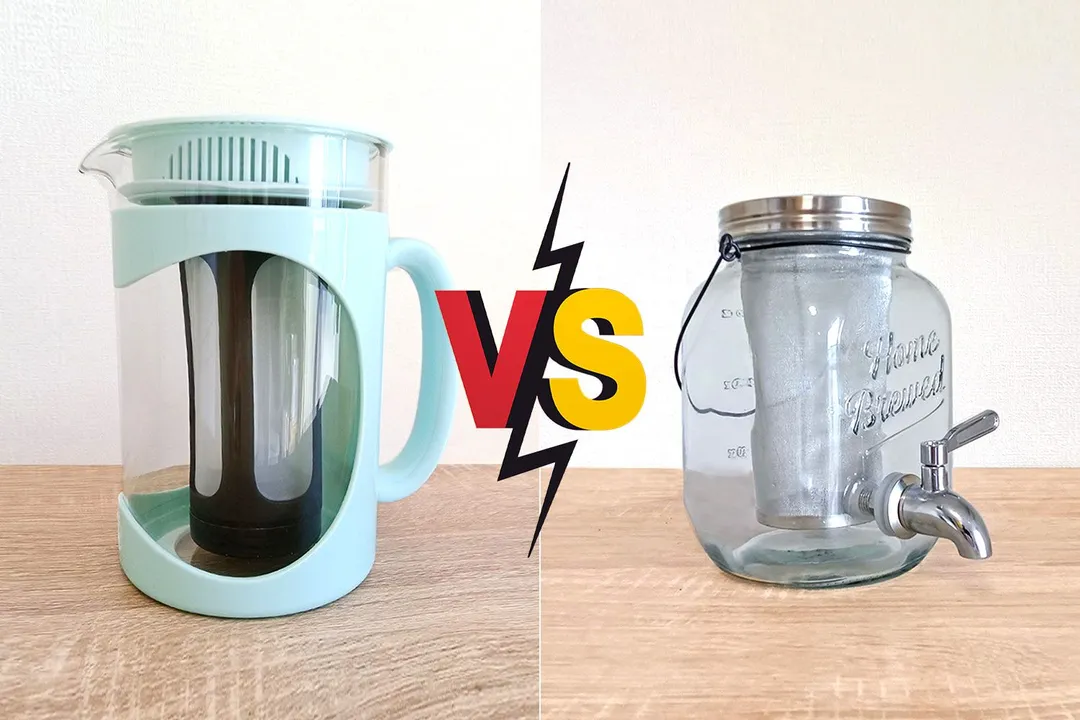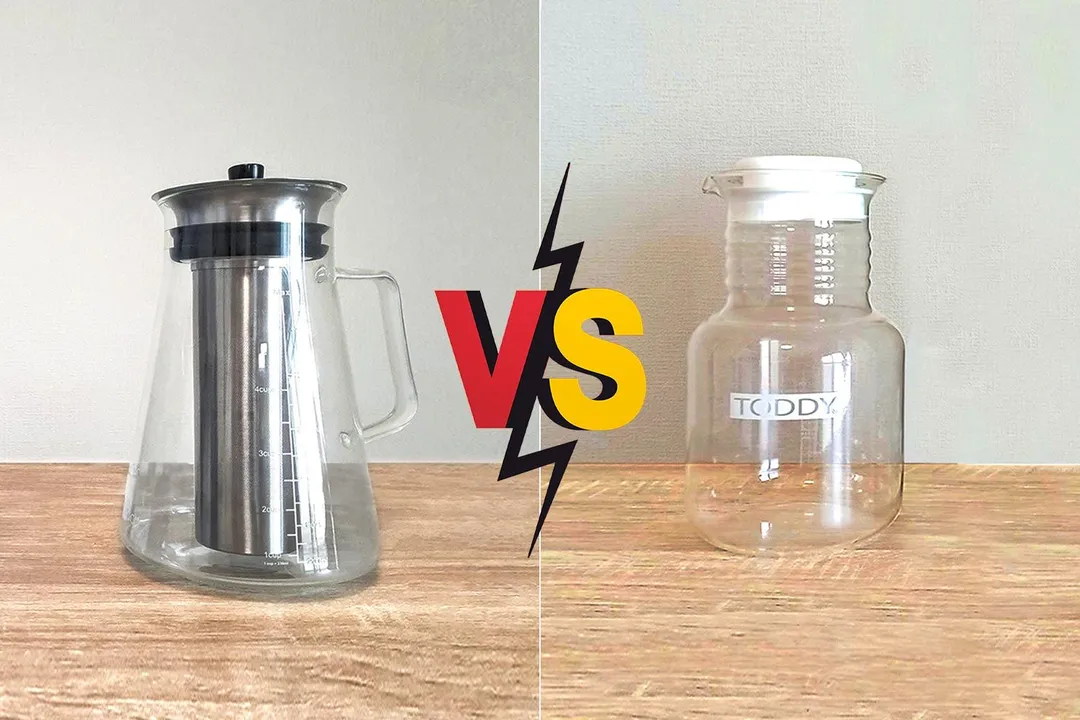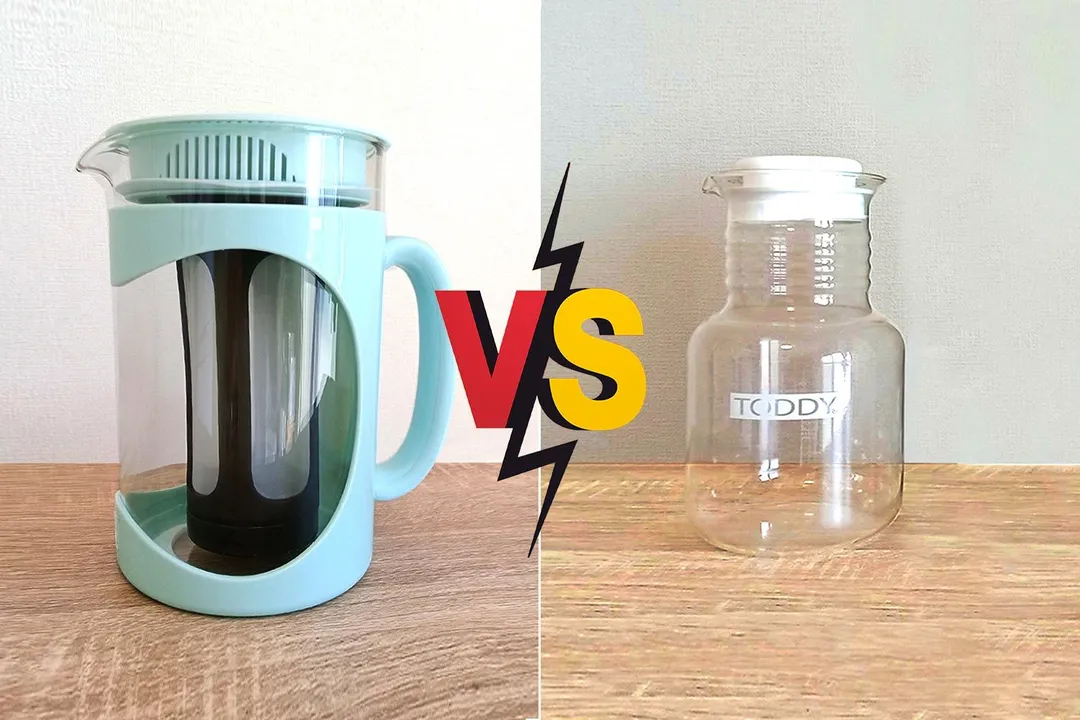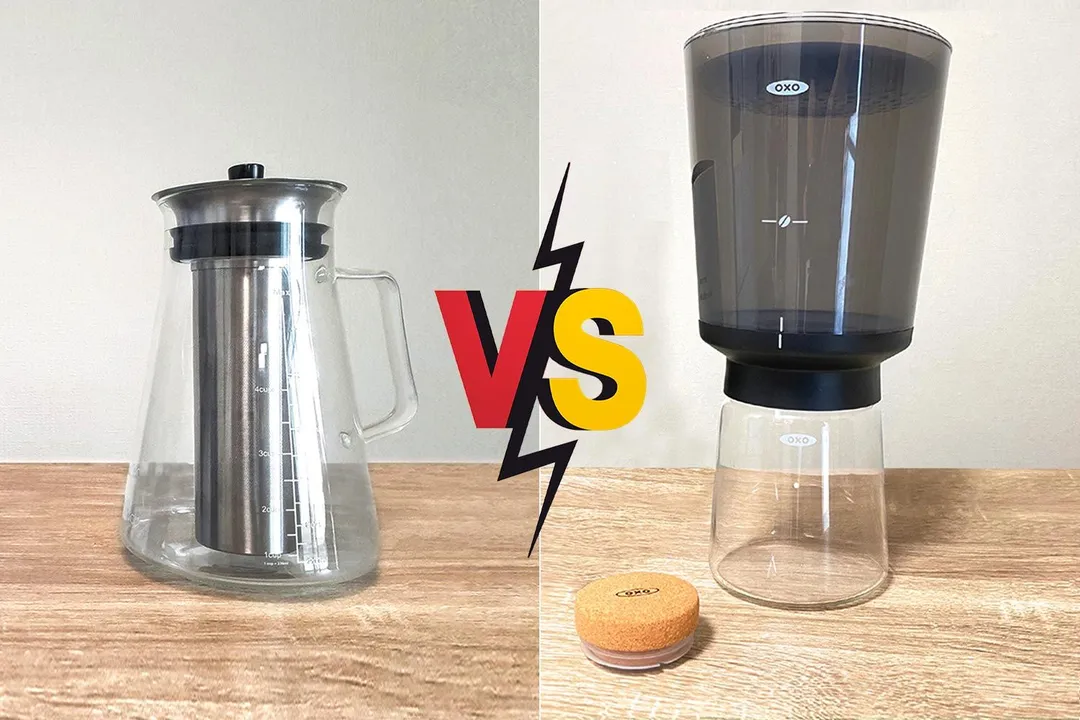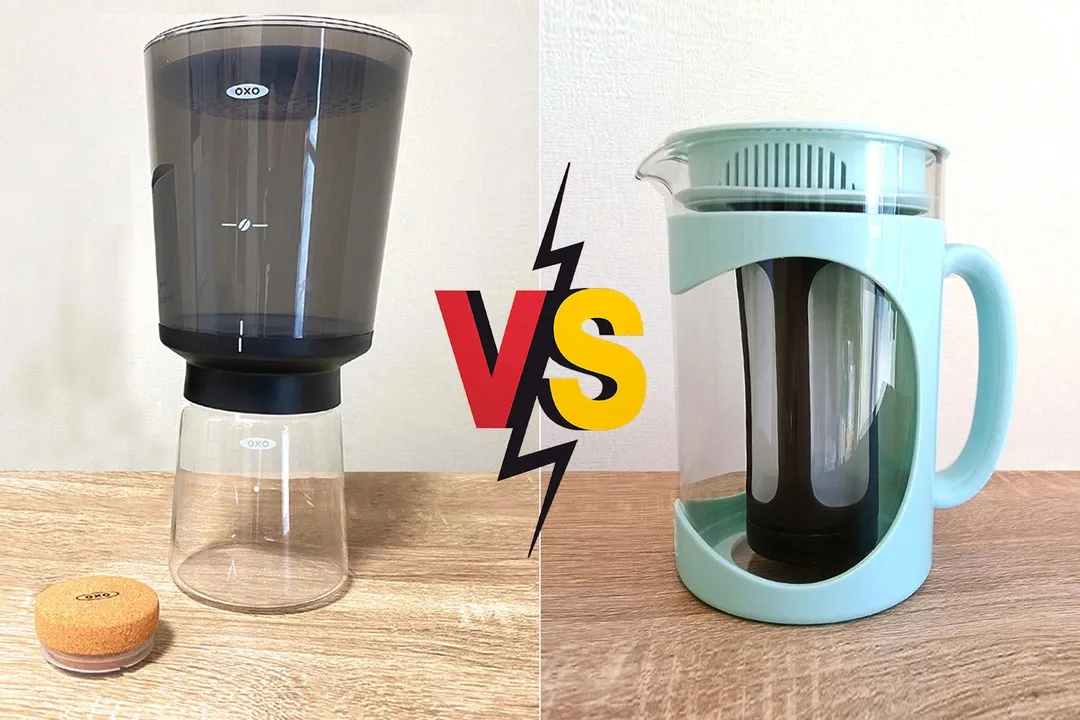Our recommendations are made independently through Research & Testing. We may receive commissions from purchases made via our links.
Primula Burke vs Aquach Side-by-Side Comparison
Primula Burke cold brew coffee maker vs Aquach. Two well-built brewers that fall short in filter design. Aquach is the better choice.
Primula Burke Deluxe
Tested Using Methodology v1.0Aquach Cold Brew
Tested Using Methodology v1.0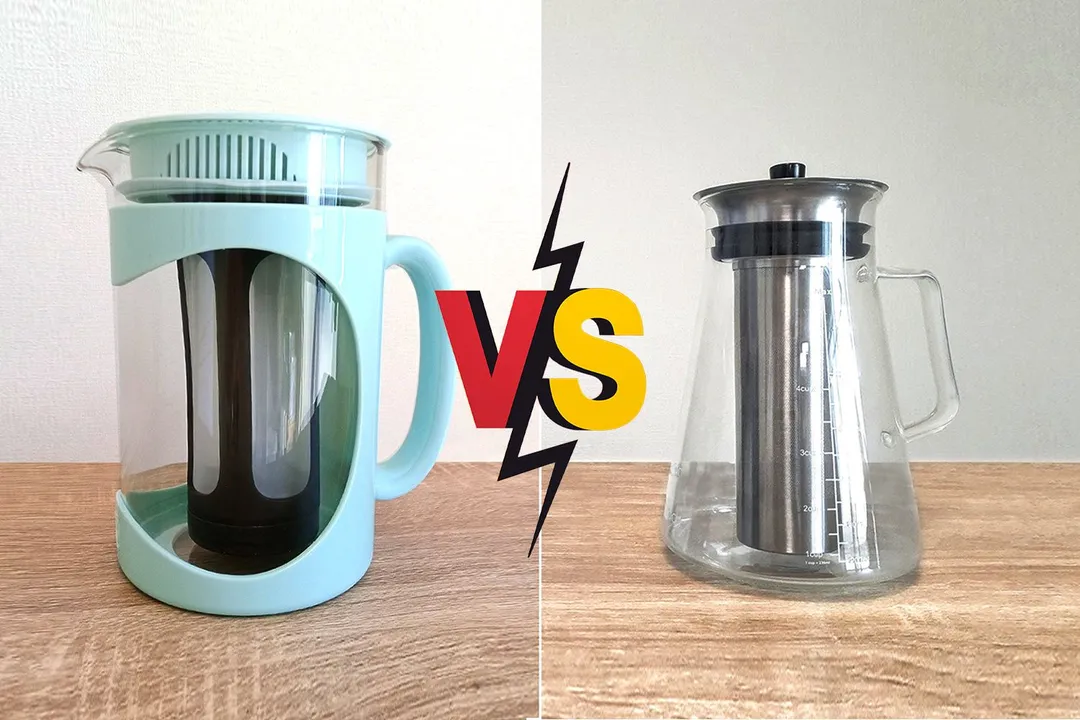
Overall Verdict
The Primula Burke and Aquach are two well-built brewers. Both have a uniquely designed lid and stopper. The Primula Burke has a double lid with a twist-to-pour feature that also allows easy brewing. The filter of the Aquach lifts out with a neat handle, and the stopper fits the same with or without the filter inserted.
However, neither brewer features the best of filters. The Aquach has a fine laser-cut stainless steel filter which, despite its practical design, produces a below-average brew. Likewise, the Primula Burke filter, made of plastic and nylon, is even finer and, as a result, the brew is well below par.
Despite these shortcomings, we would still recommend the Aquach brewer, especially for its attractive design and usefulness as a hot beverage brewer. The Primula, on the other hand, is a cold brew coffee maker that we do not recommend.
Pros & Cons
- Detachable filter base
- Protective plastic jacket
- Lid design
- Easy to clean
- Thick glass
- Stylish decanter
- Lid design
- Decanter handle
- High-quality filter
- No plastic parts
- No measurement markings
- A little heavy
- Weak brew strength
- Poor brew quality
Key Specs
Where to Buy
*You help support HealthyKitchen101's product testing and reviews by purchasing from our retail partners.
Analysis and Test Results
Brew Quality
Bouquet
Drinkability

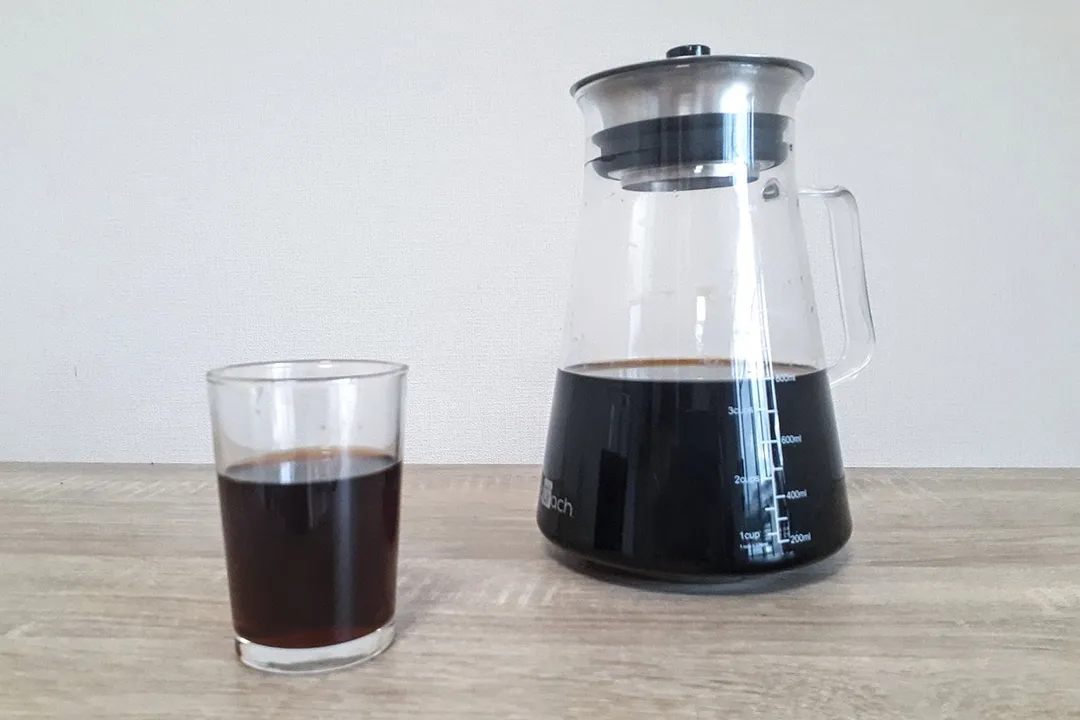
Sediment
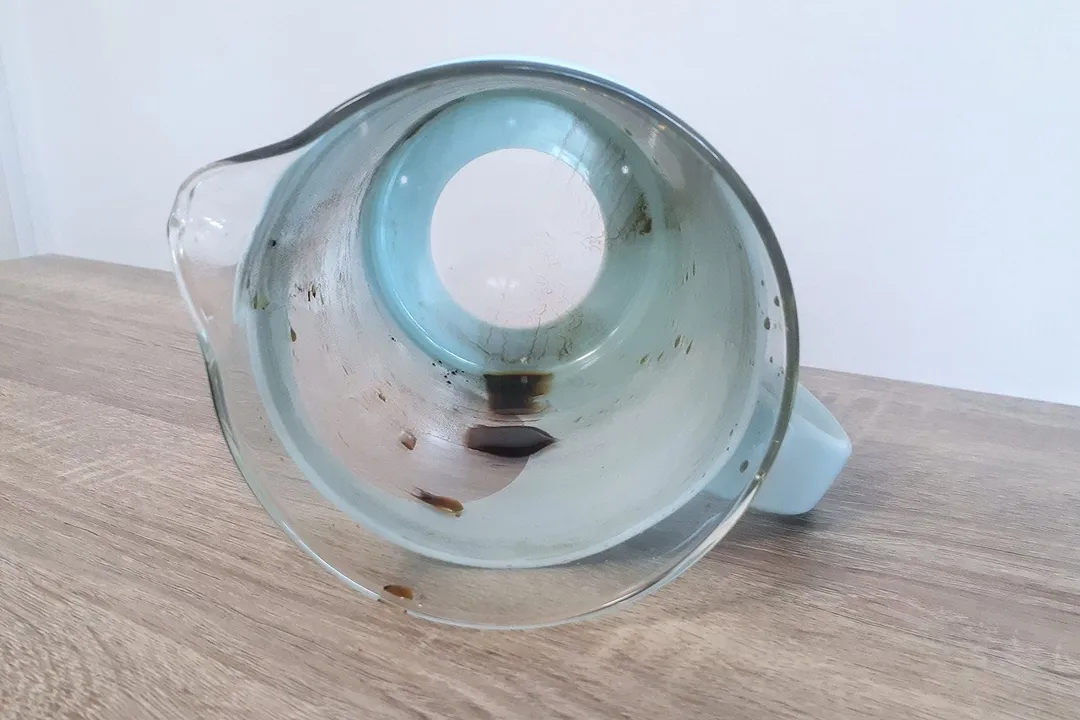
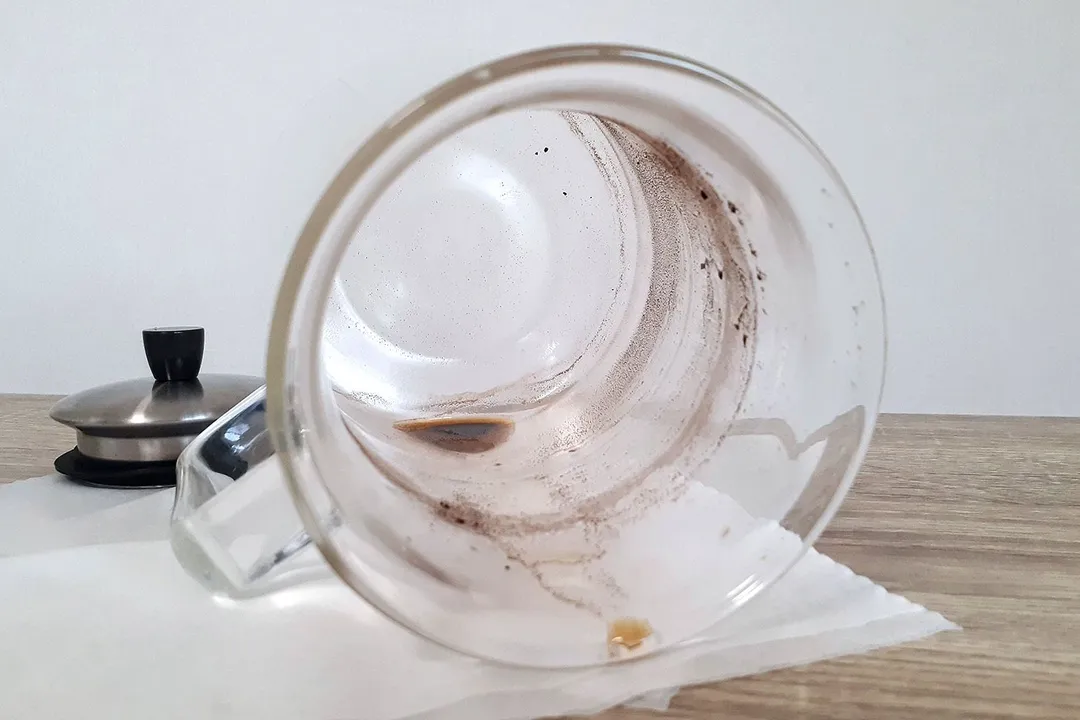
Design
In the Box


Decanter
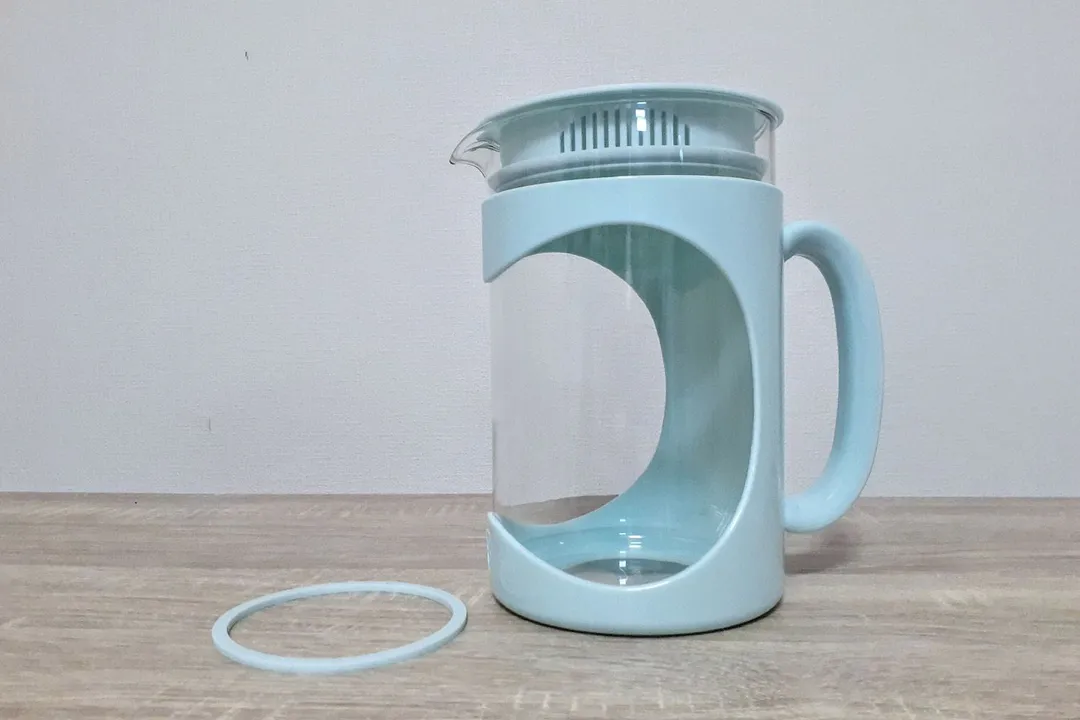

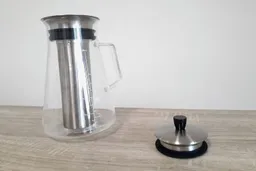
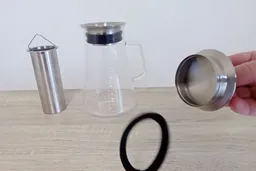
Stopper / Lid
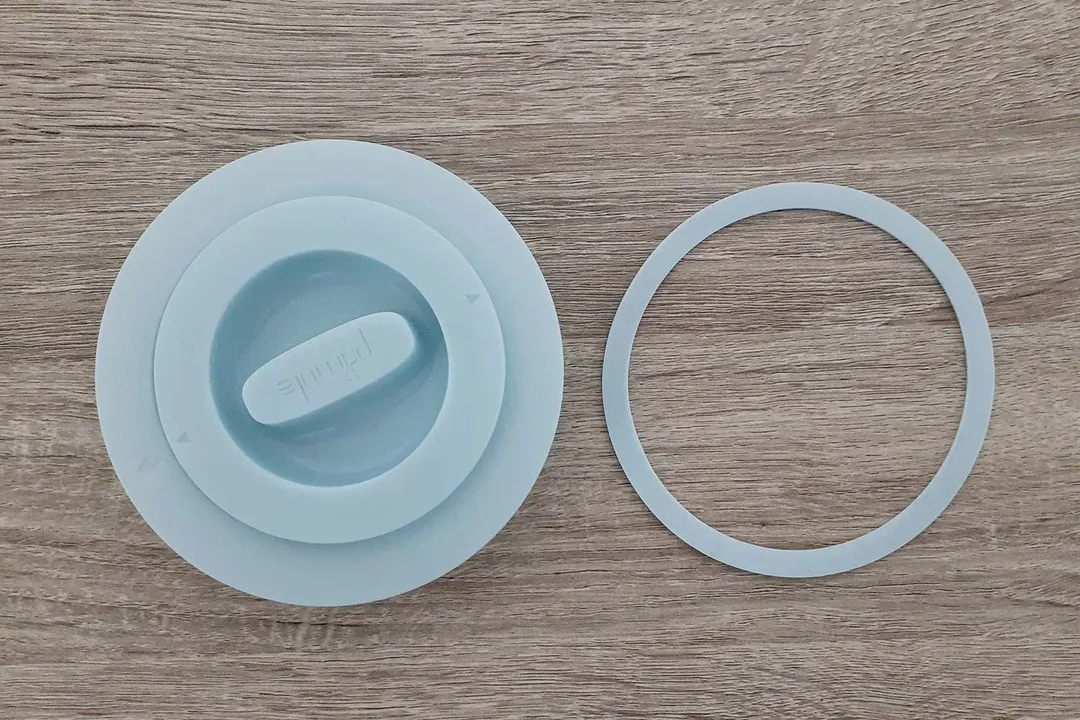
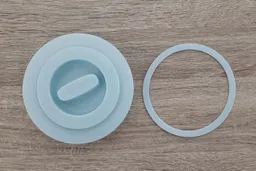
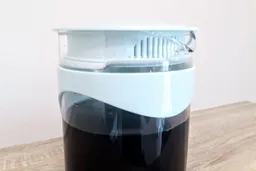
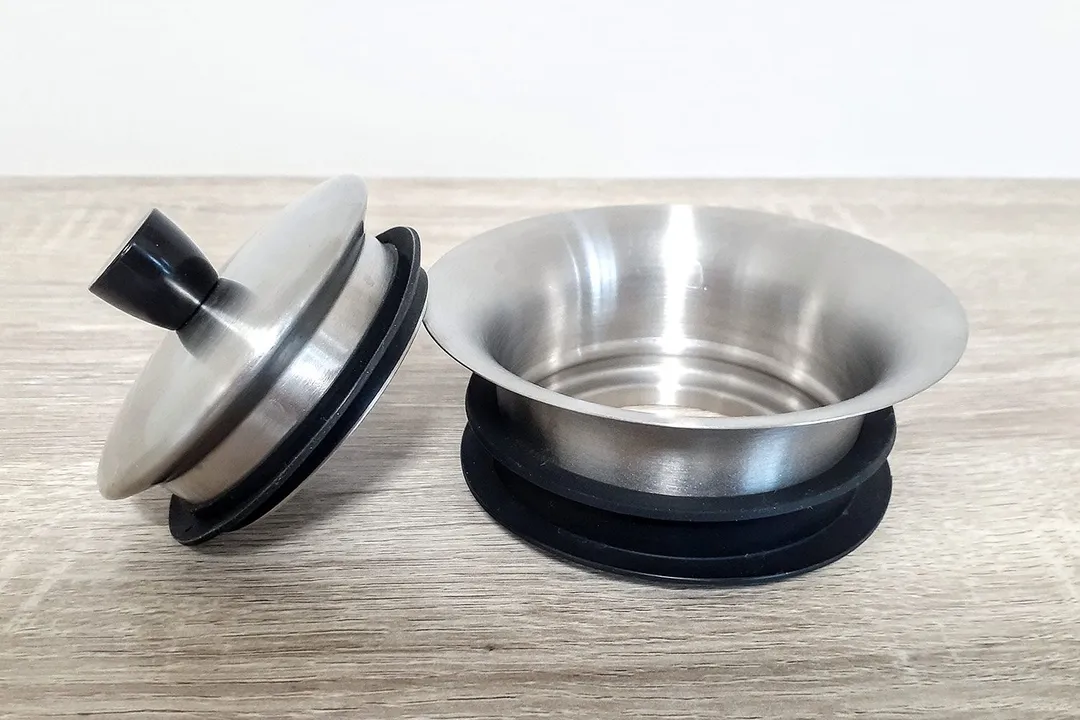
Filter
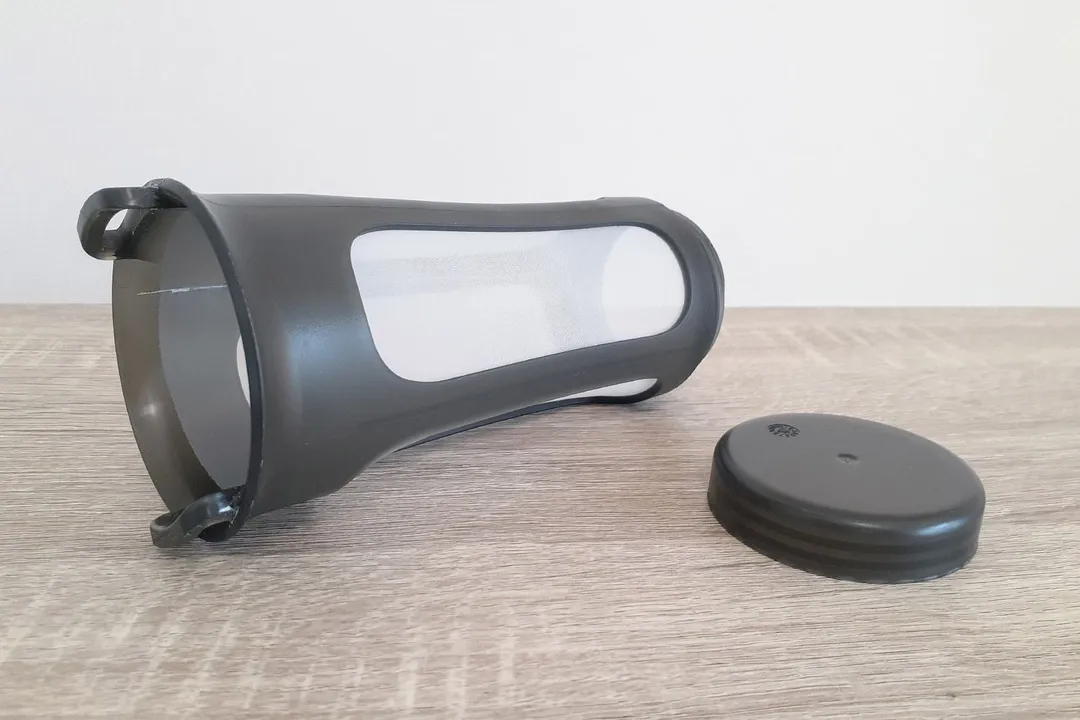
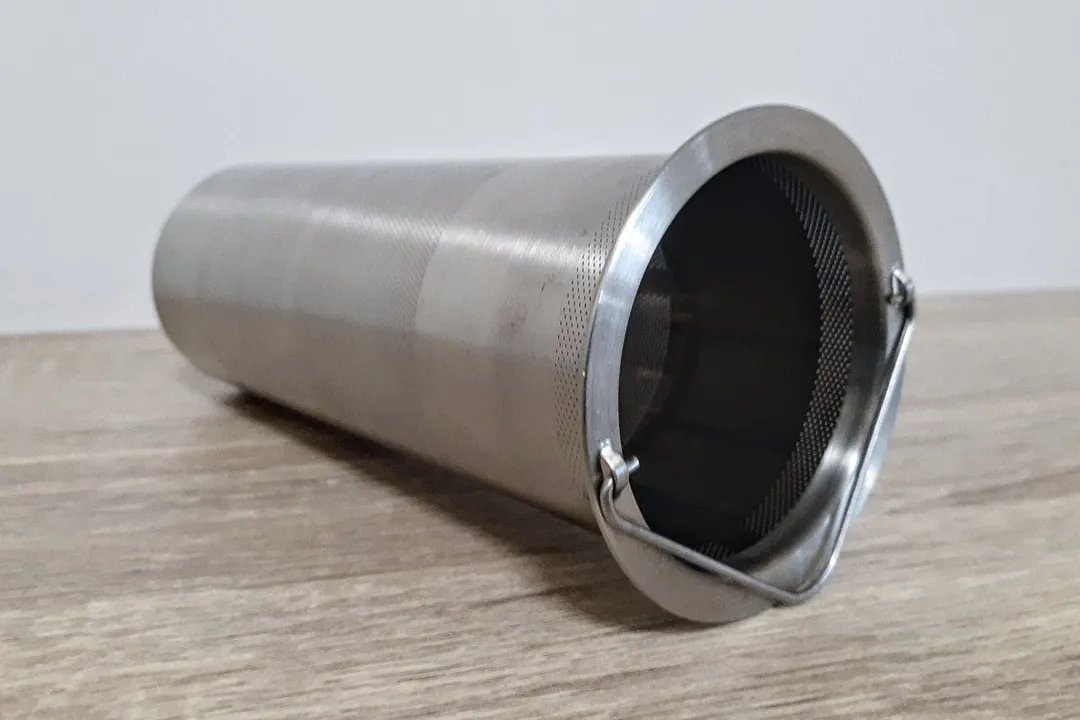
Build Quality

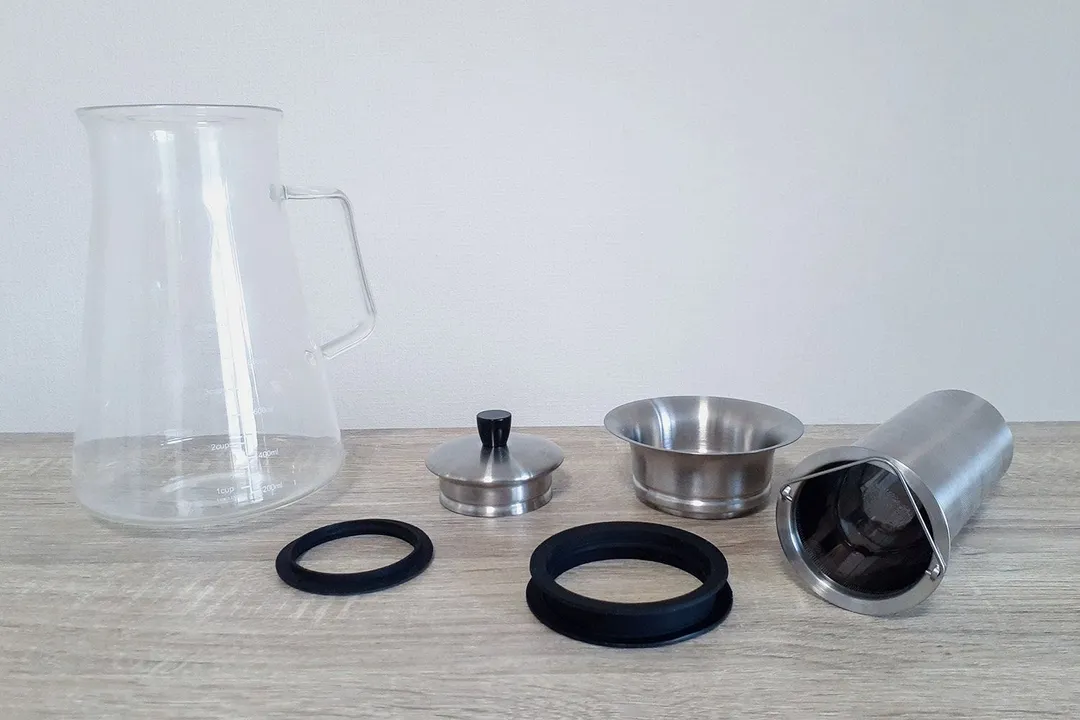
Usability
Brewing
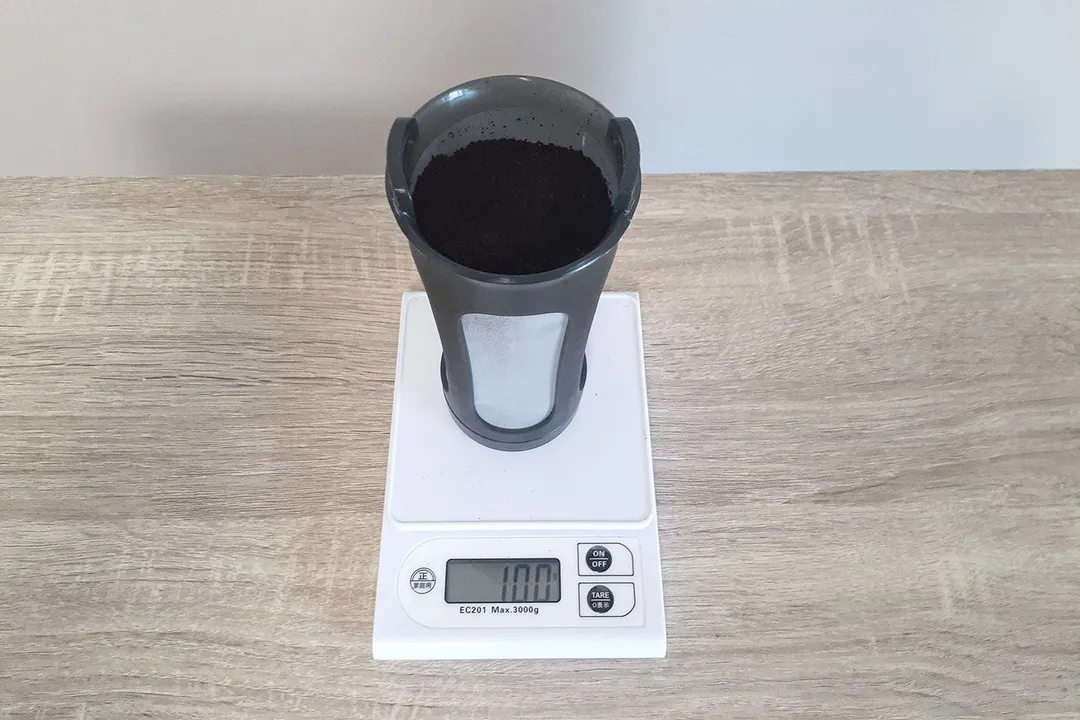
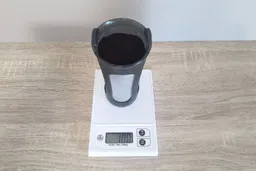
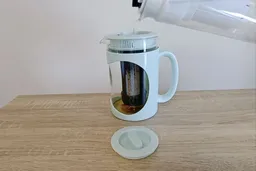
Decanting
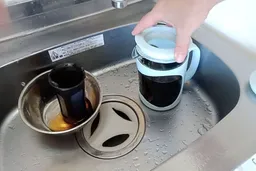
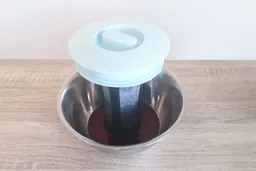
Cleaning and Storage
Behind the Comparison
Roger Shitaki is a writer, author, and editor. His niches are household appliances, health & wellness, and travel. He’s a freelance contributor to a Tokyo lifestyle website and a leading ophthalmology magazine in Asia.

